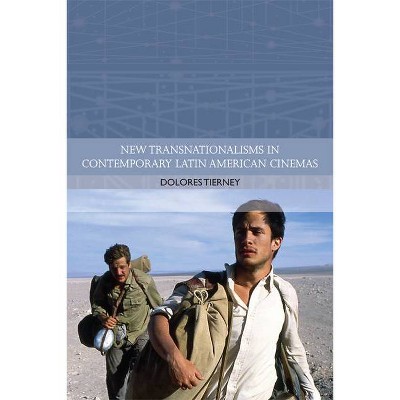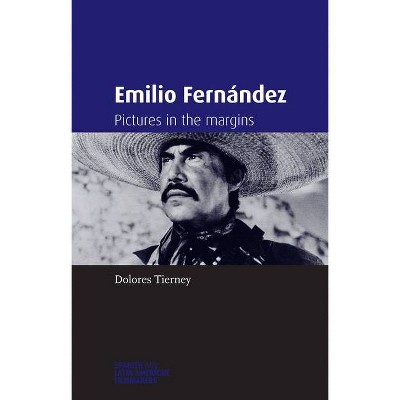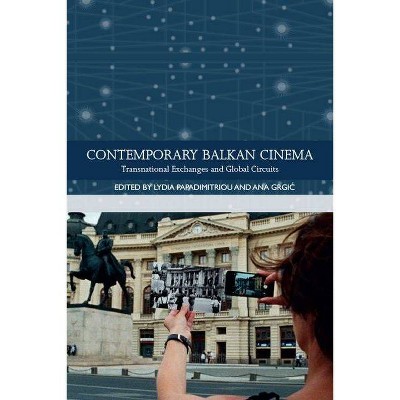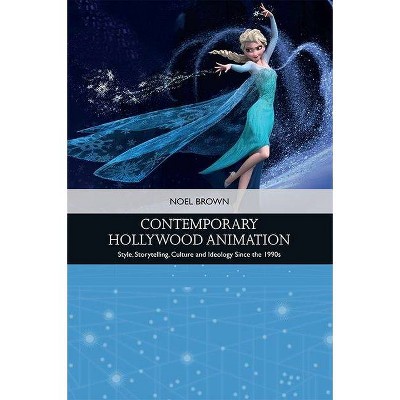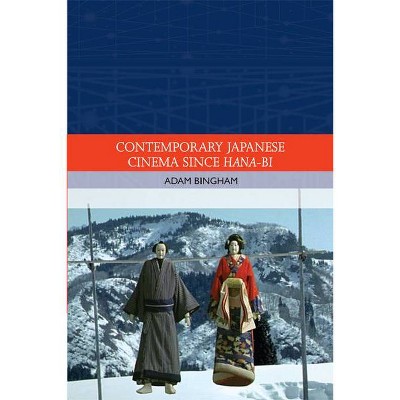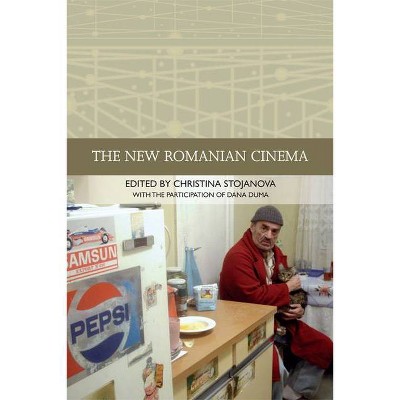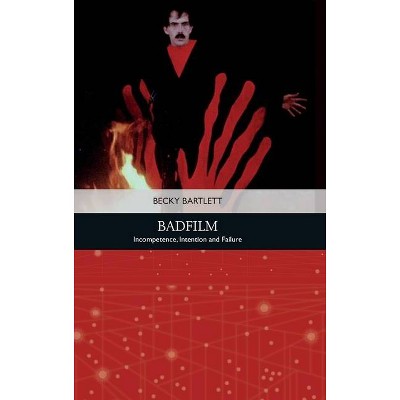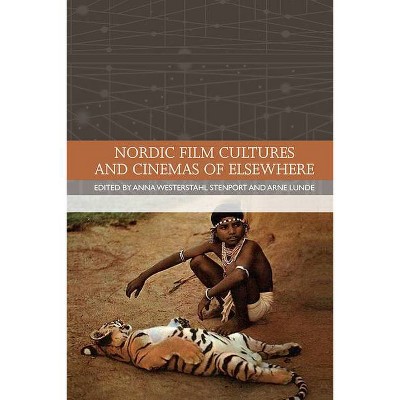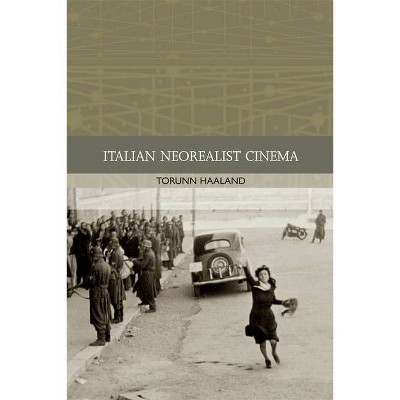New Transnationalisms in Contemporary Latin American Cinemas - (Traditions in World Cinema) by Dolores Tierney (Hardcover)
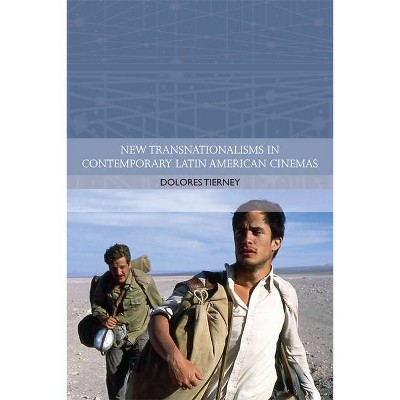
Similar Products
Products of same category from the store
AllProduct info
<p/><br></br><p><b> About the Book </b></p></br></br><p>Through a textual analysis of six filmmakers (Alejandro González Iñárritu, Alfonso Cuarón, Guillermo del Toro, Fernando Meirelles, Walter Salles and Juan José Campanella), this book brings a new perspective to the films of Latin America's transnational auteurs. </p><p/><br></br><p><b> Book Synopsis </b></p></br></br>In the late 1990s and early 2000s Latin American films like <em>Amores perros, Y tu mamá también</em> and <em>Cidade de Deus </em>enjoyed an unprecedented level of critical and commercial success in the world market. Benefitting from external financial and/or creative input, these films were considered examples of transnational cinema. Through a textual analysis of six filmmakers (Alejandro González Iñárritu, Alfonso Cuarón, Guillermo del Toro, Fernando Meirelles, Walter Salles and Juan José Campanella), this book examines these transnational films and the subsequent wave of commercially successful 'deterritorialised' films by the same directors. It argues that although films produced within the structures of the United States film industry may have been commercially successful, they are not necessarily apolitical or totally divorced from key notions of national or continental identity. Bringing a new perspective to the films of Latin America's transnational auteurs, this is a major contribution towards understanding how different genres function across different cultures.<p/><br></br><p><b> From the Back Cover </b></p></br></br>In the late 1990s and early 2000s Latin American films like Amores perros, Y tu mamá también and Cidade de Deus enjoyed an unprecedented level of critical and commercial success in the world market. Benefiting from external financial and/or creative input, these films were considered examples of transnational cinema. Through a textual analysis of six filmmakers (Alejandro González Iñárritu, Alfonso Cuarón, Guillermo del Toro, Fernando Meirelles, Walter Salles and Juan José Campanella), this book examines these transnational films and the subsequent wave of commercially successful 'deterritorialised' films by the same directors. It argues that although films produced within the structures of the United States film industry may have been commercially successful, they are not necessarily apolitical or totally divorced from key notions of national or continental identity. Bringing a new perspective to the films of Latin America's transnational auteurs, this is a major contribution towards understanding how different genres function across different cultures. Dolores Tierney is Senior Lecturer in Film Studies at the University of Sussex. Cover image: The Motorcycle Diaries, Walter Salles, 2004 (c) Film Four/Senator Film/The Kobal Collection Cover design: [EUP logo] edinburghuniversitypress.com ISBN 978-0-7486-4573-2 Barcode<p/><br></br><p><b> Review Quotes </b></p></br></br><br><p>An excellent read for scholars of transnational and Latin American cinema. It provides a remarkable in-depth discussion of six key Latin American filmmakers with a focus on issues of production, funding, auterism and the use of popular genres. Dolores Tierney signposts the reader often, making this book very approachable for students of film too.</p>--Marta F Suarez "Transnational Screens"<br><br><p>Tierney first examines the cultural politics of transnational filmmaking in Latin America in the late 1990s and the 2000s, a fruitful period that saw the production of international commercial and critical successes such as <em>Central Station</em> and <em>City of God</em>. In the remainder of the book, the author takes an auteurist approach, looking at six prominent Latin American transnational filmmakers--Alfonso Cuarón, Guillermo del Toro, Walter Salles, Fernando Meirelles, Alejandro González Iñárritu, and Juan José Campanella--with the goal of rethinking, as she writes in the epilogue, 'the relationship between Hollywood, popular cinema and contemporary Latin American cinema.' She succeeds in this goal in part through close textual analysis of key films, such as Campanella's <em>The Secret in Their Eyes</em>. In addition, Tierney, when examining specific works, fruitfully takes into account relevant issues such as funding sources (e.g., international film festivals), modes of production, international support (e.g., Sundance) for the development of scripts, and genre. She devotes considerable space to studying the deterritorialized films of these auteurs--productions (e.g., Salles's <em>On the Road</em> ) shot and/or coproduced outside a given auteur's national film industry. This insightful volume is well conceptualized and researched.</p>--D. West, emeritus, University of Idaho "CHOICE"<br><p/><br></br><p><b> About the Author </b></p></br></br><p>Dolores Tierney is Senior Lecturer in Film Studies at the University of Sussex. She has published widely on Latin American film and television including a monograph Emilio Fernández (2007), two co-edited anthologies, Latsploitation, Exploitation Cinema and Latin America (2009) and The Transnational Fantasies of Guillermo del Toro (2014). She has also written articles for Screen, Quarterly Review of Film and Video, New Cinemas, Studies in Hispanic Cinemas and Film, Fashion and Consumption.<p>
Price History
Price Archive shows prices from various stores, lets you see history and find the cheapest. There is no actual sale on the website. For all support, inquiry and suggestion messages communication@pricearchive.us
